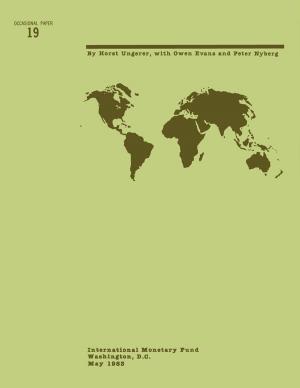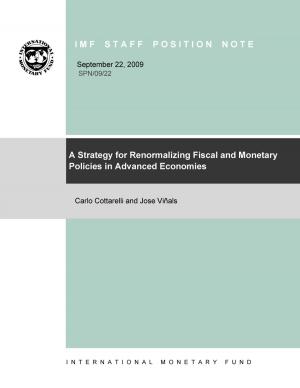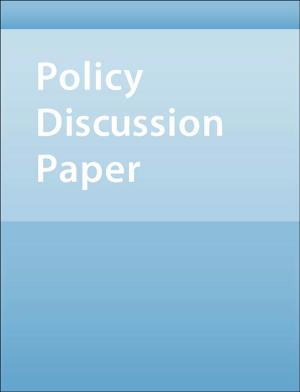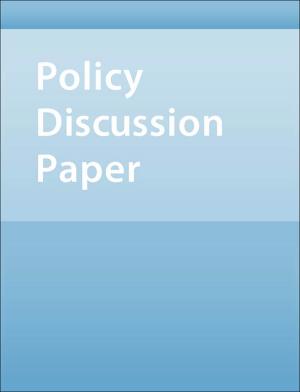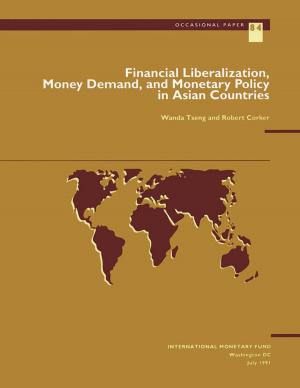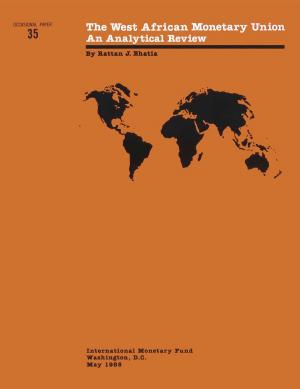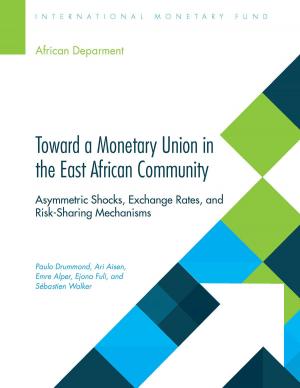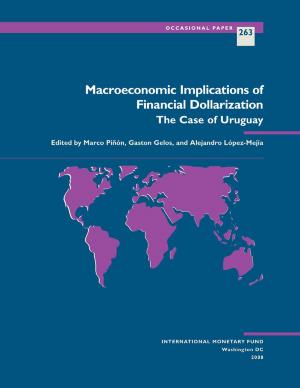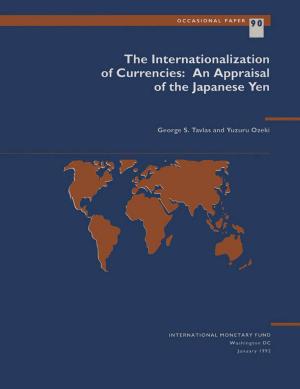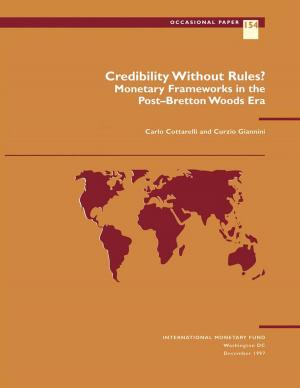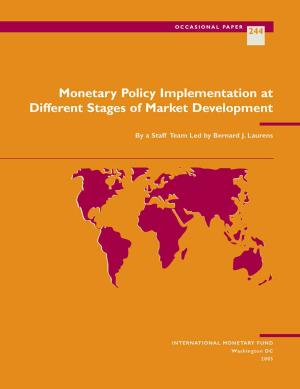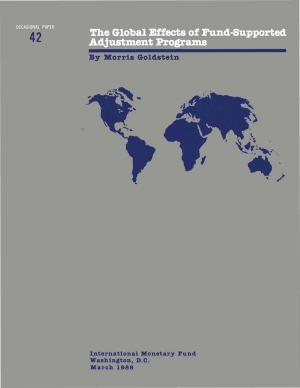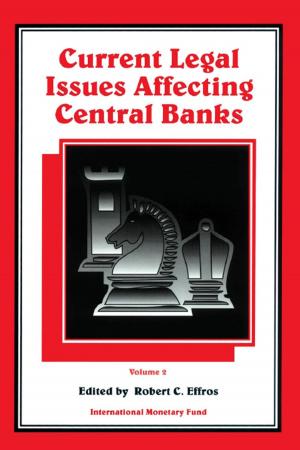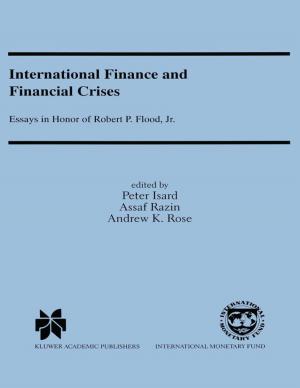International Monetary Fund imprint: 1365 books
by Peter Mr. Nyberg, Horst Ungerer, Owen Mr. Evens
Language: English
Release Date: May 16, 1983
Language: English
Release Date: May 16, 1983
This paper is concerned with developments in the European Monetary System (EMS) from its start in March 1979 through December 1982.
by Carlo Mr. Cottarelli, José Vinãls
Language: English
Release Date: September 22, 2009
Language: English
Release Date: September 22, 2009
In response to the worst economic crisis since the 1930s, government budgets and central banks have provided substantial support for aggregate demand and for the financial sector. In the process, fiscal balances have deteriorated, government liabilities and central bank balance sheets have been expanded, and risks of future losses for the public sector have increased.
by Vivek Mr. Arora, Olivier Mr. Jeanne
Language: English
Release Date: May 1, 2001
Language: English
Release Date: May 1, 2001
The Canadian experience with a floating exchange rate regime can shed some light on the question of whether A question of current interest in many parts of the world is whether with growing economic integration among groups of countries makes a fixed exchange rate, or even a common currency, becomes...
by John Mr. Abbott, R. Mr. Johnston
Language: English
Release Date: March 1, 2005
Language: English
Release Date: March 1, 2005
Assessing financial systems' stability has required the IMF to dig deeper into financial sector issues and to include financial integrity elements in its assessments. Integrity elements are increasingly being addressed by international standards. More progress is needed, however, to prepare a comprehensive...
by Robert Mr. Corker, Wanda Ms. Tseng
Language: English
Release Date: March 15, 1991
Language: English
Release Date: March 15, 1991
This study examines the financial reforms undertaken by nine Asian countries in the 1980s (Indonesia, Korea, Malaysia, Myanmar, Nepal, the Philippines, Singapore, Sri Lanka, and Thailand) and their implications for money demand and monetary policy.
by Rattan Bhatia
Language: English
Release Date: May 15, 1985
Language: English
Release Date: May 15, 1985
Until 1984, the West African Monetary Union (WAMU) consisted of six West African countries- Benin, Burkina Faso, Ivory Coast, Niger, Senegal, and Togo. (Mali withdrew from the Union in 1961 and rejoined in 1984; it is therefore excluded from this analysis, which deals with a period when it was not a member.)
Toward a Monetary Union in the East African Community
Asymmetric Shocks, Exchange Rates, and Risk-Sharing Mechanisms
Language: English
Release Date: July 20, 2015
This paper examines how susceptible East African Community (EAC) economies are to asymmetric shocks, assesses the value of the exchange rate as a shock absorber for these countries, and reviews adjustment mechanisms that would help ensure a successful experience under a common currency. The report...
by Gaston Mr. Gelos, Alejandro Mr. López Mejía, Marco Mr. Piñón-Farah
Language: English
Release Date: July 25, 2008
Language: English
Release Date: July 25, 2008
Uruguay has experienced a remarkable recovery since the 2002 crisis, supported by sound policies and favorable external conditions. With the framework put in place in 2002, Uruguay abandoned an exchange rate peg in favor of a free float, adoped a monetary regime initially based on money targets, improved...
by Yusuru Ozeki, George Mr. Tavlas
Language: English
Release Date: January 15, 1992
Language: English
Release Date: January 15, 1992
A tripolar international monetary system-centered on the U.S. dollar, the deutsche mark, and the yen - appears to be emerging. This paper not only assesses the role of the yen as an international currency but also presents a unified theory of international currency use and distinguishes between the roles of a nation as a world banker and as an international financial intermediary.
by Carlo Mr. Cottarelli, Curzio Giannini
Language: English
Release Date: December 23, 1997
Language: English
Release Date: December 23, 1997
During the last 25 years, monetary practice in most countries has increasingly been characterized by the attempt to achieve credibility of purpose while expanding the freedom of monetary authorities in controlling policy instruments. Thus, the world has moved toward monetary frameworks in which, through...
by Bernard Mr. Laurens
Language: English
Release Date: December 20, 2005
Language: English
Release Date: December 20, 2005
The most salient trend in monetary policy over the past two decades has been increasing reliance on money market operations, which reflects the belief that allowing market forces to allocate financial resources brings about increased economic efficiency and growth. However, small economies and countries...
by Morris Mr. Goldstein
Language: English
Release Date: March 19, 1986
Language: English
Release Date: March 19, 1986
This is the second of a group of papers dealing with various aspects of Fund-supported adjustment Programs.
by Robert Mr. Effros
Language: English
Release Date: June 1, 1994
Language: English
Release Date: June 1, 1994
Volume II, edited by Robert C. Effros, contains the collected views of banking and legal expers, gathered at the second IMF-sponsored seminar of central banks general counsels. Matters of both international and domestic concern are addressed. The contributors analyze topics ranging from concepts of international...
by
Language: English
Release Date: January 24, 2000
Language: English
Release Date: January 24, 2000
This book contains the proceedings of a conference held in honor of Robert P. Flood Jr. Contributors to the conference were invited to address many of the topics that Robert Flood has explored including regime switching, speculative attacks, bubbles, stock market voloatility, macro models with nominal...
